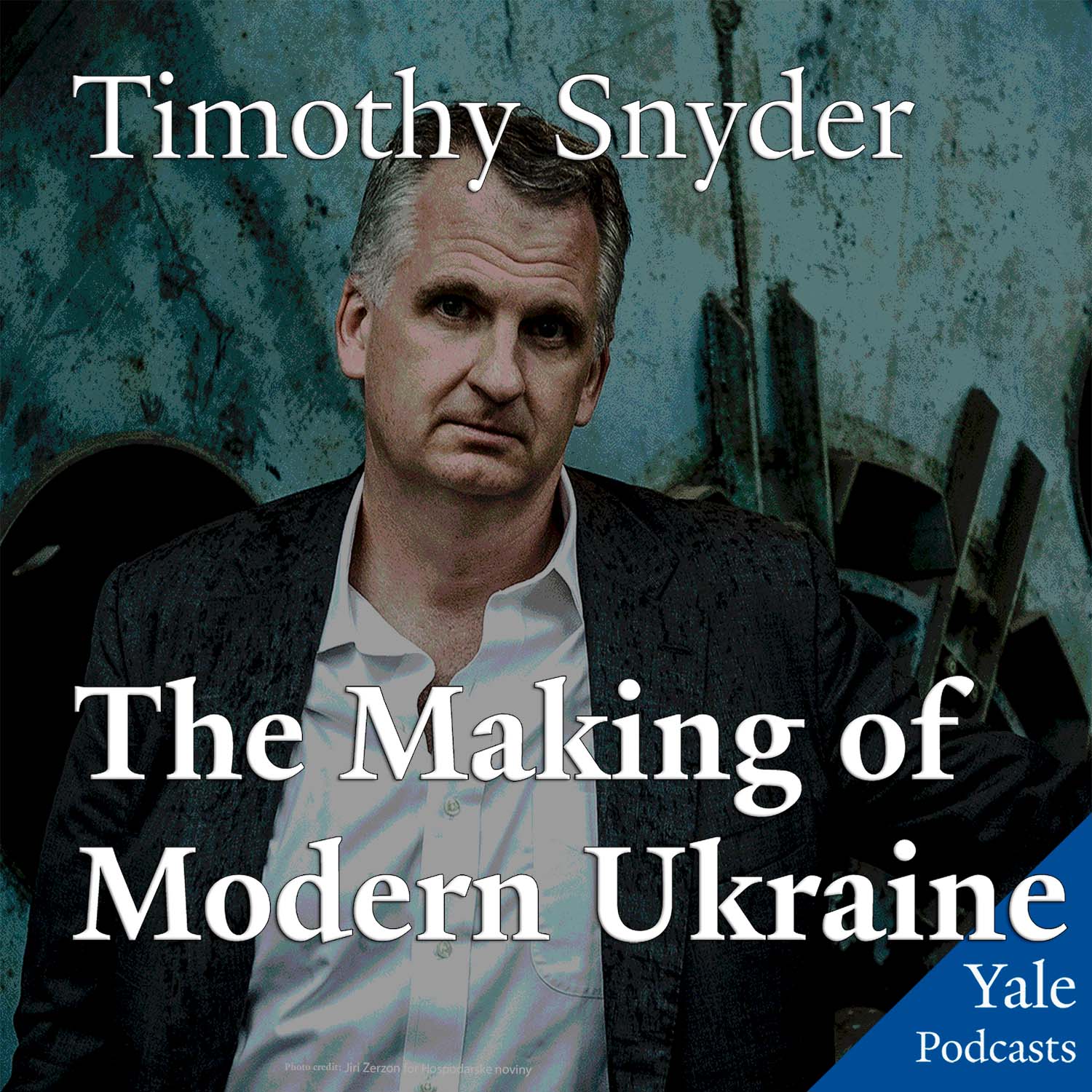Enjoy with discernment
☆
☆
☆
☆
☆
“This series of lectures provides some useful information and a lot of useful perspective on the history of Ukraine in the context of the ongoing war there. Understandably, it is affected by that conflict, but, problematically, it doesn't try very hard to be objective, in its tone any more than in its perspective or content. (This is most apparent, and most problematic, in the guest lecture on the Maidan Revolution by Marci Shore [Prof. Snyder's wife, also a professor at Yale], where she admits to being personally repulsed by the former president Yanukovych. She also glosses over the participation of violent far-right groups in that event.)
Lecturers must deal with the dilemma of balancing content and commentary (facts and interpretation, although of course these cannot be neatly separated out). This course leans much more toward interpretation. Hence if you're listening to the lectures only, without reading the books and articles on the syllabus, you'll miss out on much of the actual happenings of Ukrainian history, not just the events but also the longer-term socio-economic changes and the enduring cultural achievements. (The father of modern Ukrainian literature, Taras Shevchenko, is mentioned only once, in passing, if I recall correctly.) Fortunately many of the books are available for free online, esp. via archive.org, and some of the articles are available on the personal pages of the authors at academia.edu.
The interpretations are often interesting and are best when explaining the shifting thinking on Ukrainian identity by the ruling elites over the course of Soviet rule. But they focus almost exclusively on the perspective of the rulers and leave out the ruled. E.g. the lecture on the Holodomor does a good job explaining why Stalin and the Soviet elite committed the mass murder by starvation of 4 million Ukrainians, but has almost nothing to say about the experience of any of those 4 million (or the survivors)--though this is covered in some detail in the assigned reading from Snyder's Bloodlands. And when it does deal with the ruled, it is usually about the intellectuals and dissidents rather than the common people. Furthermore, what culture he does discuss is almost exclusively literary (presumably due to his own tastes). Apart from a few references to Ukrainian baroque architecture and to modern Ukrainian rock bands, there is no mention of Ukrianian visual arts or music (one might mention the great composer Dmitry Bortniansky, claimed by both the Ukrainian and Russian musical traditions).
Another major gap is the relative lack of treatment of religion in Ukrainian history. Snyder himself acknowledges this in the penultimate lecture. But covering the last decade (or last three decades) of Ukrainian history without any discussion of the complicated three-way competition between Orthodox churches (four-way, if we add the Greek Catholics) is a great omission in a country where faith is so important to a large segment of the population and so connected to politics and to Russian influence. (And with regard to earlier history, he never mentions the Metropolitan of Kyiv Petro Mohyla as a person, only his name in the title of the famous Academy in Kyiv that he founded; and he never mentions Feofan Prokopovych, the Ukrainian churchman who masterminded Peter the Great's ecclesiastical reforms.)
This brings me again to the problem of balance. Granted, it is hard to lecture dispassionately about Russian influence and interference when Russia is waging a war of aggression against Ukraine. But a historian is not supposed to be a propagandist, or even a journalist. We turn to historians to give us as objective a perspective on what is happening in the present by providing as objective an interpretation of what has happened in the past, as distasteful as such objectivity may seem in the heat of the moment. Snyder focuses on a cluster of aggressive imperialist Russian narratives about the history of Ukraine, but he would have helped us understand the tragic intellectual and emotional position the Russian people are in vis-a-vis their Ukrainian neighbors by also including more idealistic or more anguished reflections on that relationship. And he does a historical injustice, one which troublingly echoes German propaganda of the First and Second World Wars, by virtually excluding Russia from the heritage of Kyivan Rus' and consigning it to being an ugly stepchild of the Mongol conquest. Acknowledging that modern Russia is a child of Rus' does not mean justifying the current war. Snyder also critiques German imperialist or post-imperialist narratives about Ukraine in the final lecture, but despite referring to U.S. imperialism in vague terms in the early lectures, passes over it in silence when discussing current events. He also does not problematize his own avowed participation in the current events as a kind of intellectual adviser to the current Ukrainian government and its allies in the U.S. and Europe.
A final comment in closing: the lectures are well-delivered, a bit too chatty for my taste but salted with a good sense of humor. I would probably give this course 3.5 stars if I could, but decided to round down, to counter-balance the gushing reviews from everyone else.”Read full review »
Evgenios Iver via Apple Podcasts ·
United States of America ·
01/12/23
More reviews of The Making of Modern Ukraine
☆
☆
☆
☆
☆
“It’s great to see Ukrainian history from the perspective.”
karatsuba via Apple Podcasts ·
Great Britain ·
07/19/23
“This human. This podcast. This time.
“There is no way to do nothing”.”
eb1670 via Apple Podcasts ·
United States of America ·
02/27/23
☆
☆
☆
☆
☆
“This is a really great series, Mr. Snyder is very knowledgeable. I highly recommend Borderlands by Snyder as well.”
RTJ_Sunbather via Apple Podcasts ·
United States of America ·
01/16/23
Do you host a podcast?
Track your ranks and reviews from Spotify, Apple Podcasts and more.


